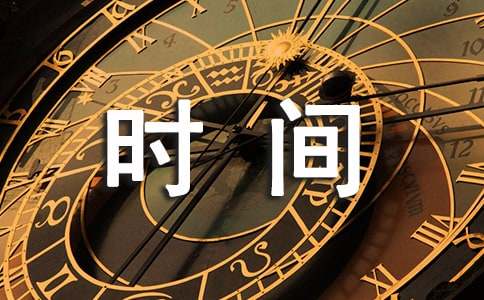- 相关推荐
when和while引导时间状语从句的区别及用法
连接时间状语从句的连接词有:when、before、after、while、assoonas、until、since......如果主句是一般将来时,从句只能用一般现在时表示将来意义。下面小编为您收集整理了when和while引导时间状语从句的区别及用法,欢迎阅读!

when和while引导时间状语从句的基本区别:
(一)、when,while都有“当……时候”的意思。
when既可表示某一点时间,也可以表示某一段时间 。在when引导的时间状语从句中,其谓语动词可以是延续性的,也可以是非延续性的,可与主句中的谓语动词同时发生,也可在其后发生。
例如: 1、I was just reading a book when she came into my room.
她走进我房间时,我正在看书。
2、Were you writing when the teacher came in?
老师进来的时候,你在写信吗?
3、When he was a child he was always trying out new ideas.
他小时候就常常试验一些新的设想。
(二)、while只能表示某一段时间,不能表示某一点时间。
在while引导的时间状语从句中,其谓语动词只能是延续性的,而且也只能与主句中的谓语动词同时发生或存在。
例1、While Jim was mending his bike, Lin Tao came to see him.
正当吉姆修自行车时,林涛来看他。
2、You can’t do your homework while you’re watching TV.
你不能一边看电视一边做家庭作业。
(三)、另外,when和while的区别还在于:
while引导的时间状语从句多用进行时态,而when引导的时间状语从句多用一般时态。
例如:
1、While they were talking , the bell rang.
正在他们谈话的时候,上课铃响了。
2、I was doing my homework when my mother came back home yesterday evening.
昨天晚上妈妈回家的时候,我正在做家庭作
通过观察,我们可以这样理解:when引导的从句里动作发生的时间相对主句动作发生的时间要短些;while引导的从句里的动作发生的时间相对主句而言更长些。
when和while引导时间状语从句的讲解:
When,While,As引导时间状语从句的区别
when,while,as显然都可以引导时间状语从句,但用法区别非常大。
一、when可以和延续性动词连用,也可以和短暂性动词连用;而while和as只能和延续性动词连用。
① Why do you want a new job when you’ve got such a good one already?(get为短暂性动词)你已经找到如此好的工作,为何还想再找新的?
②Sorry,I was out when you called me.(call为短暂性动词)对不起,你打电话时我刚好外出了。
③Strike while the iron is hot.(is为延续性动词,表示一种持续的状态)趁热打铁。
④ The students took notes as they listened.(listen为延续性动词)学生们边听课边做笔记。
二、when从句的谓语动词可以在主句谓语动作之前、之后或同时发生;while和as从句的谓语动作必须是和主句谓语动作同时发生。
1.从句动作在主句动作前发生,只用 when。
①When he had finished his homework,he took a short rest.(finished先发生)当他完成作业后,他休息了一会儿。
②When I got to the airport,the guests had left.(got to后发生)
当我赶到飞机场时,客人们已经离开了。
2从句动作和主句动作同时发生,且从句动作为延续性动词时,when,while,as都可用。
①When /While /As we were dancing,a stranger came in.(dance为延续性动词)当我们跳舞时,一位陌生人走了进来。
②When /While /As she was making a phone call,I was writing a letter.(make为延续性动词)当她在打电话时,我正在写信。
3.当主句、从句动作同时进行,从句动作的时间概念淡化,而主要表示主句动作发生的背景或条件时,只能用 as。这时,as常表示“随着……”;“一边……,一边……”之意。
① As the time went on,the weather got worse.(as表示“随着……”之意)
② The atmosphere gets thinner and thinner as the height increases.
随着高度的增加,大气越来越稀薄。
③As years go by,China is getting stronger and richer.
随着时间一年一年过去,中国变得越来越富强了。
④The little girls sang as they went.小姑娘们一边走,一边唱。
⑤The sad mother sat on the roadside,shouting as she was crying.
伤心的妈妈坐在路边,边哭边叫。
4.在将来时从句中,常用when,且从句须用一般时代替将来时。
①You shall borrow the book when I have finished reading it.在我读完这本书后,你可以借阅。
②When the manager comes here for a visit next week,Ill talk with him about this.下周,经理来这参观时,我会和他谈谈此事。
三、when用于表示“一……就……”的句型中(指过去的事情)。
sb.had hardly(=scarcely) done sth.when...=Hardly / Scarcely had sb.done sth.when...
①I had hardly /scarcely closed my eyes when someone knocked at the door.=Hardly / Scarcely had I closed my eyes when someone knocked at the door.我刚一闭上眼,就有人在敲门了。
②I had hardly /scarcely entered my room when the telephone rang.=Hardly /Scarcely had I entered my room when the telephone rang.
我刚一走进房门,电话就响了。
Whenwhileas的区别
①when是at or during the time that, 既指时间点,也可指一段时间;
while是during the time that,只指一段时间,因此when引导的时间状语从句中的动词可以是终止性动词,也可以是延续性动词,而while从句中的动词必须是延续性动词。
②when 说明从句的动作和主句的动作可以是同时,也可以是先后发生;while 则强调主句的动作在从句动作的发生的过程中或主从句两个动作同时发生。
③由when引导的时间状语从句,主句用过去进行时,从句应用一般过去时;如果从句和主句的动作同时发生,两句都用过去进行时的时候,多用while引导,如:
a. When the teacher came in, we were talking.
当此句改变主从句的位置时,则为:
While we were talking, the teacher came in.
b. They were singing while we were dancing.
④when和while 还可作并列连词。when表示“在那时”;while表示“而,却”,表对照关系。如:
a. The children were running to move the bag of rice when they heard the sound of a motor bike.
孩子们正要跑过去搬开那袋米,这时他们听到了摩托车的声音。
b. He is strong while his brother is weak.
他长得很结实,而他弟弟却很瘦弱。
拓展:时间状语从句知识点总结
1.When既可引导一个持续动作,也可引导一个短暂动作,可用于主句和从句动作同时发生或从句动作先于主句动作。当主句是将来时,从句的时态用现在时。(when在实际中用得最多)
I told my children when Lincoln was your age he walked twelve
miles to school everyday. But my son said, Thats nothing. When he was your age, he was president.
我告诉我的孩子:当林肯你那么大岁数时他每天走12英里去学校,我儿子说,那没什么,当他你那么大岁数时已经当总统了。
theres a side to President Reagan that people dont know. When he was a young man, he read complete works of Shakespeare. Of course, when Reagan was young, Shakespeare hadnt written all that
里根总统还有一面人们并不知道,年轻时他曾读过莎士比亚全集当然里根年轻时莎士比亚还没写那么多。
注:讽刺里根读书少,岁数大。
当when引导的时间状语从句为系表结构,而且其主语和主句的主语一致,其标语又是一个名词,就可以以as引导的省略句来代替when引导的从句。如:
As a young man, he read complete works of Shakespeare.
他年轻时读过莎士比亚全集。
When the game is finished, the king and the pawn[卒] go into to the same box.
游戏结束时,国王和士兵进入同一个盒子。
注:人生就象一场游戏,游戏结束时,亿万富翁也好,平头百姓也好都进入一样大小的棺材(或骨灰盒)。Finish为短暂动作,从句动作先于主句动作。
场景再现:在筹集善款的晚会上,可以这么调侃:
How noisy an audience can be when you ask for quiet ____ and how quiet it can be when you ask for money.
(多么令人惊奇啊,)当你要求安静时听众乱烘烘的当你要钱时全场一片寂静。
2.While引导的动作必须是持续性的,侧重主句动作和从句动作相对比。如:
Plumber(水暖工): Im sorry I was late.
Man: While we were waiting for you, I taught my wife how to swim.
水暖工:很抱歉我来晚了。
男人:我们等你的时候,我教我太太学游泳。
【when和while引导时间状语从句的区别及用法】相关文章:
状语从句中独立主格结构的用法09-06
职称英语语法知识点时间状语从句10-31
英语语法:虚拟语气在状语从句中的用法03-11
too和enough的用法区别03-24
英语语法:表语从句的用法02-14
accept与receive的用法与区别03-11